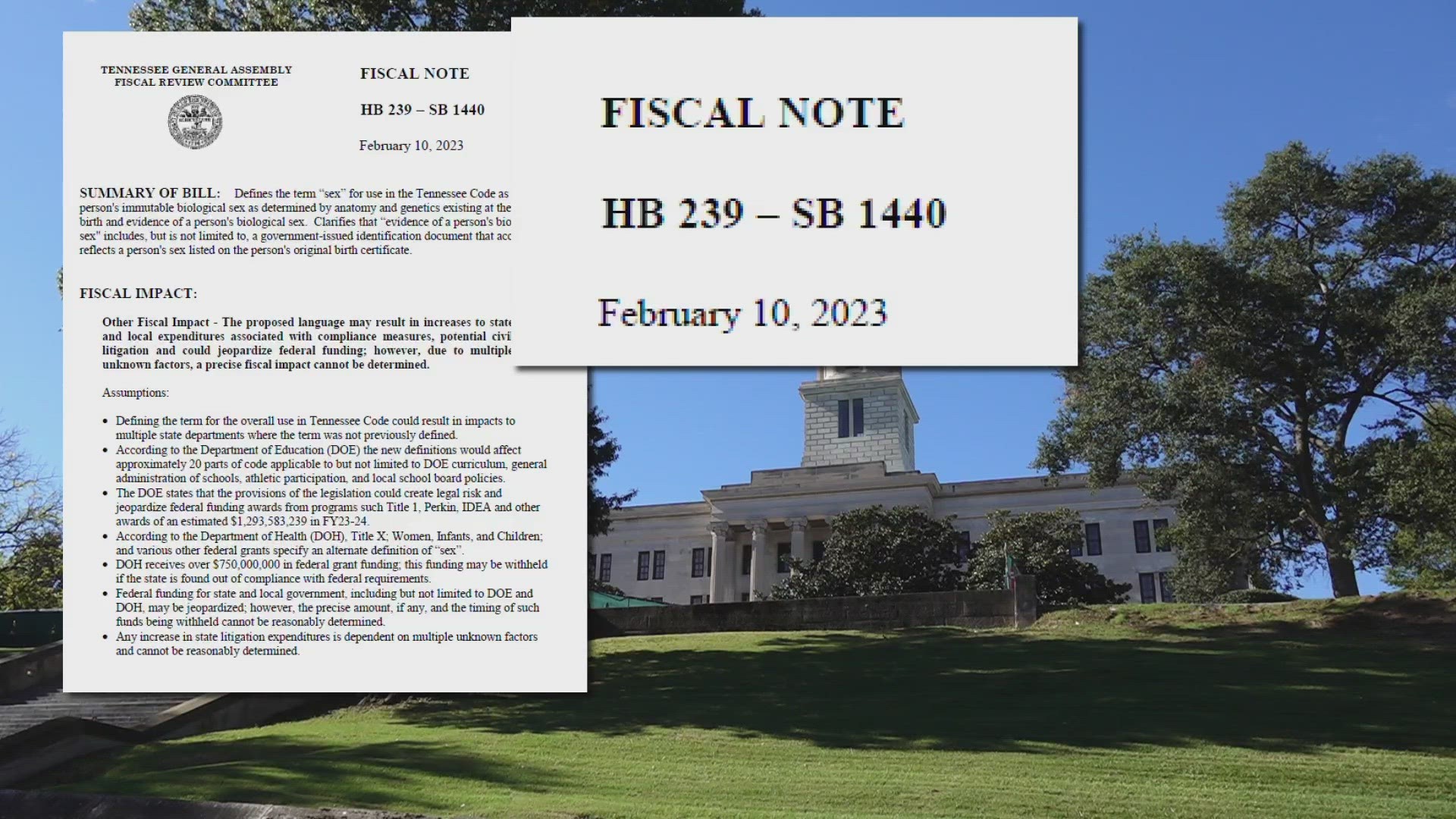NASHVILLE, Tenn. — Tennessee could lose around $2 billion in federal funding after state lawmakers passed a bill that creates a legal term for "sex" for use in statutes and in the state code.
The bills, HB 0239 and SB 1440, create a statutory definition of "sex" that excludes considerations of gender expression or gender identity. The exact definition the bill uses is below.
As used in this code, unless the context otherwise requires, "sex" means a person's immutable biological sex as determined by anatomy and genetics existing at the time of birth and evidence of a person's biological sex. As used in this subsection (c), "evidence of a person's biological sex" includes, but is not limited to, a government-issued identification document that accurately reflects a person's sex listed on the person's original birth certificate.
Representative Gino Bulso (R - Brentwood) introduced the House bill, and Senator Kerry Roberts (R - Springfield) introduced the Senate version.
By requiring that definition be used on all government-issued documentation, anyone whose gender identity does not align with their gender assigned at birth may not be able to change their driver's licenses and birth certificates.
The bill's fiscal note warns that the language could result in increases in state and local expenses because it could result in the state not complying with federal requirements for grants, programs and other awards.
It also says that $750 million in federal grants to the Department of Health would be at risk should the bill become law. It said that Title X grants and many others have a different definition of "sex" than what the bill proposes.
The fiscal note also says the bill would affect nearly 20 parts of the federal code, which would negate $1,293,583,239 of federal funding given to Tennessee. The Department of Education requires schools to respect a student's gender identity. If a state refuses to follow its rules, then the state would risk funding from the federal government.
It also warns that the state could face civil litigation.
"However, due to multiple unknown factors, a precise fiscal impact cannot be determined," the fiscal note says.
The bill requires the governor to either sign or allow it to become law without vetoing it before becoming law. It would take effect on July 1.

